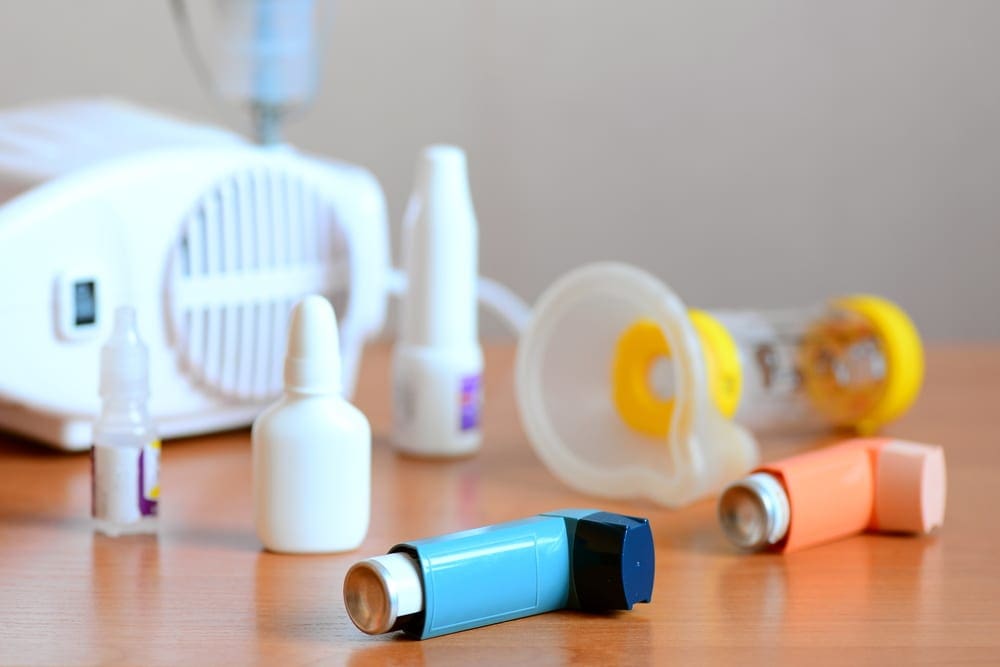Asthma is a common long-term condition which affects over 5 million people in the UK. It causes coughing, breathlessness, chest tightness and wheezing with symptoms varying from person to person. Severe asthma attacks may require hospital treatment and can be life threatening. A review of studies has found that taking vitamin D supplements in addition to asthma medication seems to cut the risk of severe asthma attacks.
Details of the review
The Cochrane research body looked at nine clinical trials and were led by Professor Adrian Martineau. They found that taking vitamin D reduced the risk of severe attacks requiring a visit to A & E or a hospital admission from 6% to 3%. They also found that the need for steroid treatment was reduced.
Professor Martineau said they found vitamin D “significantly reduced the risk of severe asthma attacks, without causing side effects.” He called the review “an exciting result” but acknowledged that some caution was warranted.
The team went on to say that more studies were needed and recommended patients speak to their GP before taking a vitamin D supplement. Results of further analyses should be available in the next few months.
Dr Erika Kennington, head of research at Asthma UK said: ” With so many different types of asthma it could be that vitamin D may benefit some people with the condition but not others. Asthma UK’s research centres are working hard to discover how and why vitamin D affects asthma symptoms and if it could be a potential treatment in the future.”
What are the symptoms of asthma?
Symptoms can range from mild to severe and can vary from person to person and at different times of the day. The main symptoms are:
- coughing – especially at night
- wheezing – especially in the morning
- shortness of breath
- tightness in your chest
If your symptoms get significantly worse, it is known as an asthma attack and this can be sudden and unexpected. If your inhaler medication is not helping to relieve your symptoms you should call 999 and seek immediate help.
What causes asthma?
Asthma is caused by inflammation of the bronchi which are small tubes carrying air in and out of the lungs. When you come into contact with something which irritates your lungs, your airways become narrow, the muscles around them tighten and there is an increase in the production of sticky phlegm. These asthma triggers can include:
- exercise
- pollen
- animal fur
- house dust mites
- cigarette smoke
- viral infections
- chemicals in the workplace
Asthma can develop at any age including in young children and the elderly.
How is asthma diagnosed?
Your GP will ask about your symptoms and possible triggers which may affect you. They will also ask whether you are prone to allergies or have any family history of allergic conditions such as hay fever or eczema. They may listen to your chest with a stethoscope and then carry out one or more of the following tests:
- Peak flow measurement – this measures how fast you can blow air out of your lungs in one breath. As this is a small hand held device, you may be given one to take home to record your measurements over a period of weeks.
- Spirometry – this involves taking a deep breath and exhaling as fast as you can through a mouthpiece attached to a spirometer.
- Allergy tests – these can help to find out if you are allergic to certain substances
- Chest x-rays – these can rule out other possible causes of your symptoms such as a chest infection.
How is asthma treated?
Depending on the severity of your symptoms, your GP may prescribe several different medications for your asthma. They should review your treatment plan on a regular basis.
- Inhalers – Asthma medicines are usually given by inhalers. These deliver medication directly into your lungs. Some are pressurised, others are in dry powder form.
- Spacers – A spacer is a cylinder which is attached to the end of the inhaler. When using a spacer, the vapour from the inhaler is released into the cylinder where it is held while you breathe in slowly. Many people find that this makes the process easier and more effective.
- Nebulisers – These make a mist of asthma medicine that you breathe in. They may be useful if you suffer a severe attack and need emergency treatment.
Living with asthma
Medicines are only part of how you should manage your condition, here are some other things you should consider:
- Take care of yourself and try to maintain good physical and mental fitness.
- Keep a diary to record your triggers to help you avoid them in the future wherever possible.
- Measure your peak flow at home using a peak flow meter.
- Stop smoking if possible.
- Get a flu vaccination each year
- Try breathing exercises
- Take your medication as prescribed
- Ensure that you attend your GP surgery or clinic for regular reviews, ideally at least once a year.
- Try to get a good night’s sleep
- Eat a balanced, healthy diet. Food based allergic triggers are uncommon but should be considered.
In conclusion, it is important to remember that, if you have asthma, you should be able to live a full and unrestricted life. Generally your treatment plan should enable you to keep your condition under control. But remember, you shouldn’t make any changes to your medication without first discussing it with your GP.
If you would like more information, you can click on the following link to the charity Asthma UK:
Finally, to keep up to date on health matters especially geared for us over 50s, please don’t hesitate to follow us on Facebook. You can also sign up to our free newsletter, The Best of Friends here.












